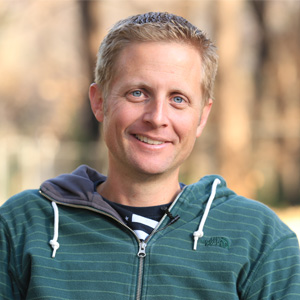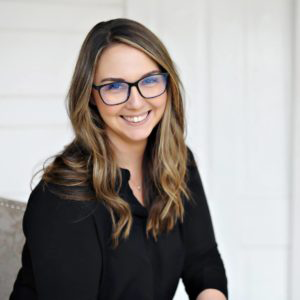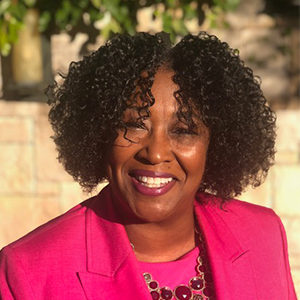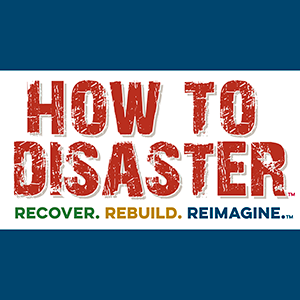Take 5- Community Engagement
“This is going to speak to the value of community organizations coming together in a space that allows them to cross collaborate and to have meetings identified by certain needs… Participating in those committees and being very focused on making sure that you’re attending those community meetings, and being a part of that is really critical.” -Charles Brooks
“When you’re in the same zone, you can utilize people, reduce costs, and do less work, because it’s centralized.” -Jenna Murray-Johnson
“When the day is in the bleakest and the darkest, hold on hope because tomorrow shall come. A unique thing you can bring as a leader is hope for people.” -Lorez Bailey
Disasters can happen anywhere, and when they do, it is vital that the community comes together to help rebuild. That’s where effective leadership comes in – leaders can help to coordinate and manage community efforts, and ensure that everyone has the resources they need to recover.
Community engagement is key to a successful recovery from a disaster. In this Take 5 episode, Rebuild Paradise Founder Charles Brooks, Camp Fire Zone Captains Co-Founder Jenna Murray- Johnson, and Executive Director at Chop’s Teen Club Lorez Bailey discuss how communities can come together to support each other and be more resilient in coping with the challenges of a disaster.
Disasters can be a time of great need and also of great opportunity. With the right leadership and engagement, communities can come together to rebuild and recover stronger than before!
Highlights:
- 01:31: S1 Ep 6- How to Create a Rebuild Organization with Charles Brooks
- 04:46: S1 Ep17- How to Zone Captain: Rural Area with Jenna Murray-Johnson
- 08:26: S1 Ep 14- How to Lead During a Disaster & Racial Reckoning with Lorez Bailey
Quotes:
02:34: “The need to get houses back for people that are displaced, for workforce housing, and also to support the current businesses that are there is paramount.” -Charles Brooks
03:06: “This is going to speak to the value of community organizations coming together in a space that allows them to cross collaborate and to have meetings identified by certain needs… Participating in those committees and being very focused on making sure that you’re attending those community meetings, and being a part of that is really critical.” -Charles Brooks
05:19: “I woke up and I saw a need…. Starting a nonprofit was a choice, but that was also like the love child of being chosen to do this thing.” -Jenna Murray-Johnson
07:15: “When you’re in the same zone, you can utilize people, reduce costs, and do less work, because it’s centralized.” -Jenna Murray-Johnson
09:39: “Part of leadership is ‘Can you walk into the fear?’” -Lorez Bailey
12:36: “When the day is in the bleakest and the darkest, hold on hope because tomorrow shall come. A unique thing you can bring as a leader is hope for people.” -Lorez Bailey
13:37: “It is what it is today. But that doesn’t mean it has to always be like that and it doesn’t mean that we can’t change it or make it better.” -Lorez Bailey
Meet Charles Brooks:
 Charles Brooks is a graduate of CSU Chico with a degree in Business Administration. Charles and his wife Jennifer have been Paradise Residents since 2004 and Butte County since 1998. Charles has always had a heart for service. He is an Eagle Scout and has been involved in several volunteer civic organizations including; Boy Scouts of America Students in Free Enterprise, Butte County Search & Rescue, Paradise Citizens’ Alliance, and coached his boys’ soccer teams for many years. Founding Rebuild Paradise was an easy choice and necessary step to assist the Butte County community recover in a meaningful way over the many years to come.
Charles Brooks is a graduate of CSU Chico with a degree in Business Administration. Charles and his wife Jennifer have been Paradise Residents since 2004 and Butte County since 1998. Charles has always had a heart for service. He is an Eagle Scout and has been involved in several volunteer civic organizations including; Boy Scouts of America Students in Free Enterprise, Butte County Search & Rescue, Paradise Citizens’ Alliance, and coached his boys’ soccer teams for many years. Founding Rebuild Paradise was an easy choice and necessary step to assist the Butte County community recover in a meaningful way over the many years to come.
Connect with Rebuild Paradise Foundation:
Meet Jenna Murray-Johnson:
 Jenna is a native of Plumas County but has spent the last 10 years residing in Butte County (Paradise) with her husband, two stepsons, and daughter. Jenna was raised in a family of Real Estate brokers. She has been licensed for over 10 years and enjoyed every facet of Real Estate because this has always been her passion. She is one of the top producing agents in Butte County. Also, she has proudly served her community in all aspects – not just real estate. She has served on the Social Committee for the Oroville Association of Realtors and was the Social Committee Chair in 2013 and 2014. She is currently a member of Sierra North Valley Realtors, regularly volunteers at the VRC in Chico, and is an advocate for rebuilding the Paradise community.
Jenna is a native of Plumas County but has spent the last 10 years residing in Butte County (Paradise) with her husband, two stepsons, and daughter. Jenna was raised in a family of Real Estate brokers. She has been licensed for over 10 years and enjoyed every facet of Real Estate because this has always been her passion. She is one of the top producing agents in Butte County. Also, she has proudly served her community in all aspects – not just real estate. She has served on the Social Committee for the Oroville Association of Realtors and was the Social Committee Chair in 2013 and 2014. She is currently a member of Sierra North Valley Realtors, regularly volunteers at the VRC in Chico, and is an advocate for rebuilding the Paradise community.
Meet Lorez Bailey:
 Lorez Bailey is an Executive Officer at Chop’s Teen Club. Her charm is in being charismatic, analytical, problem-solver, and effective communicator that has a successful 10-year track record of effectively leading organizations and teams, and a history of developing and operationalized strategies that have taken organizations to the next stage of growth, while building a culture of high expectations, inclusivity, collaboration, and a little fun never hurts.
Lorez Bailey is an Executive Officer at Chop’s Teen Club. Her charm is in being charismatic, analytical, problem-solver, and effective communicator that has a successful 10-year track record of effectively leading organizations and teams, and a history of developing and operationalized strategies that have taken organizations to the next stage of growth, while building a culture of high expectations, inclusivity, collaboration, and a little fun never hurts.
Connect with Lorez Bailey:
- Website https://www.chopsteenclub.org/
- Facebook https://www.facebook.com/chopsteenclub
- Instagram https://www.instagram.com/chopsteenclub/
- LinkedIn https://www.linkedin.com/in/lorez-bailey-221778100
Transcription:
Jennifer Gray Thompson: Welcome to Season 3 of How to Disaster Podcast where we help you recover, rebuild and reimagine. During this season, we will be releasing Take 5 shorter episodes that highlight some of our past guests speaking about similar issues, themes, topics. We wanted to do this so that perhaps it would be easier if you only have a few minutes but you wanted to connect with these focused episodes and guests, so that you can condense all their messages into one smaller bite sized piece.
One of the things that we know about disaster is that we really have to meet people where they’re at. And sometimes, where you’re at is you only have five minutes. We’re very excited for the 3rd Season. We’ve got great guests and wonderful information and content about how to actually help get your community through to the other side. So thank you for joining us.
And if you wish to find out more, please visit our homepage at afterthefireusa.org. Consider giving us a like or follow if you liked this podcast, we really appreciate it, and thank you for your time.
From Season 1, Episode 6: How to Create a Rebuild Organization, the Founder and Executive Director of Rebuild Paradise Foundation, Charles Brooks.
“The need to get houses back for people that are displaced, for workforce housing, and also to support the current businesses that are there is paramount.” -Charles Brooks
Charles Brooks: So the mission of Rebuild Paradise is to provide long term disaster support for the disaster affected residents, businesses and workforce in Butte County. Heavily focused on the campfire right now. We unfortunately have had another disaster with the North Complex Fire this year to where another one of our communities lost almost 2000 structures and so that we’re evaluating tucking that into our programmes as they start to go from disaster response to long term recovery, and seeing if we have the ability, the bandwidth and capacity to take on that as well. So we’re really focused on supporting the residents, businesses and workforce within the community. And right now, our heavy focus is on residents because commercials survived more than our residential structures did. And so the need to get houses back for people that are displaced for workforce housing, and also to support the current businesses that are there is paramount. So most of the services, nearly all the services that we’ve developed to date are to support residents coming back and lowering barriers to entry.
“This is going to speak to the value of community organizations coming together in a space that allows them to cross collaborate and to have meetings identified by certain needs… Participating in those committees and being very focused on making sure that you’re attending those community meetings, and being a part of that is really critical.” -Charles Brooks
This is going to speak to the value of a long term recovery group, or a collaborative, or after a disaster community organizations coming together in a space that allows them to cross collaborate and to have meetings identified by certain needs, housing, shelter, spiritual and emotional wellness. There’s a whole gamut of basically committees that come together. And so by participating in those committees, and being very focused on making sure that you’re attending those community meetings, and being a part of that is really, really critical because that’s where I started to develop the relationships with county officials and town officials that were coming to these meetings to represent what the municipalities were doing. So that’s where I had a chance to meet the chief building officer, the person who’s in charge of development services, which is where the county reviews floor plans, looks at permits and stuff like that. So making those relationships in your county supervisors, in your town council members and making those relationships and letting them know this is what our plan is.
Then when you go into start asking questions, they know you, and they’re willing to work with you. And so we built those relationships across both municipalities. And then when we wanted to take this floor plan, library idea forward, now, we’re having meetings with the chief building official and saying, this is how we plan to move forward. How can we work best with your staff to see that it’s functional? Because we don’t want to just dump a burden on you, we want you to be part of the process. And so in that, we’re now hosting meetings with the design community, and also the county and the town. So now, we’re having roundtable discussions about how to improve the process overall.
From Season 1, Episode 17: How to Zone Captain in a Rural Area, Co-Founder of Campfire Zone Captains in Paradise, California, Jenna Murray-Johnson.
“I woke up and I saw a need…. Starting a nonprofit was a choice, but that was also like the love child of being chosen to do this thing.” -Jenna Murray-Johnson
Jenna Murray-Johnson: I don’t know why I chose it, which is weird to say. I feel like it chose me. I never woke up and I was like, I’m going to save the world. That just wasn’t in my portfolio, my wheelhouse. I woke up and I saw a need. And I thought, I can do this for other people. And it ended up being what I needed in the long run. But it was never like a definitive choice I made. Starting the nonprofit, that was a choice. But that was also like, it was a love child of being chosen to do this thing, and it just came naturally. We were already in it. And so to kind of form it and organize it, which is what I do best. I am very good at organizing. Organizing it just came naturally to me. And so because of it, it just all fell in place.
“When you’re in the same zone, you can utilize people, reduce costs, and do less work, because it’s centralized.” -Jenna Murray-Johnson
There were several of us who went together on surveys. I believe there were about 18 of us, and we each saved over $1,000 with each parcel for the surveying. And then I know that there were a few ladies in Zone 11 That went in together on a set of plans. They tweaked them a little bit, and they ended up all using the same builder and saving costs exponentially because they’re also close together. So when you’re in the same zone, you can utilize people and reduce those costs because they’re doing less work, because it’s centralized. And so we really tried to implement that as much as possible throughout those zones. But that evolved quickly. I mean, we went from trying to get the community back together to implementing, rebuilding to realizing people were having serious struggles, both with the county and the town permits, whether or not they were allowed to live on the property. Cal OES debris removal, I mean, they were just unforeseeable events that kept popping up. And then we realize that they’re all the same, we’re all having the same issues. Everywhere, they just look a little different. So we then transition from rebuilding to education. We were like, okay, who needs this information? How do we push it? So we went to work on the website, and we created what we call the weekly Q&A. And we did one for the town of Paradise and one for the county.
From Season 1, Episode 14: How to Lead During a Disaster and Racial Reckoning, the Executive Director of Chop’s Teen Club from Sonoma, California and Editor of the North Bay Business Journal, Lorez Bailey.
Jennifer Gray Thompson: Then to admit that something is scary, it’s scary. There’s a very prominent leader in this town. I’m not going to mention his name, we were talking one day and he said, people always ask me like, how do you do so much stuff? Or how do you take such chances? Don’t you ever get scared? And he’s like, I am scared every day. I wake up in the middle of the night and I’m scared, and I think that people would be surprised to learn that. But I’ve actually carried that through me for the past three years with me and my leadership. Because when I get scared, it is usually when I’m going to have a breakthrough to something better. And knowing that there are other people who are in positions of leadership, who are also scared sometimes has really made me more self compassionate.
“Part of leadership is ‘Can you walk into the fear?’” -Lorez Bailey
Lorez Bailey: Part of leadership is, can you walk into fear? Can you face the fear? And that’s very often like, I just [inaudible] want to give up? It’s easy to give up and then, okay, I’m gonna take one step. Sometimes, it’s bits and pieces to enough bits and pieces. But yeah, I think that people often like all the rise of Goddess, she’s got it together. She’s this guy. And I’m like, no, I’m at 3:00 o’clock in the morning doubting myself. Like everybody else, I just put my lipstick on and just keep plugging along. But the ability to kind of push through it, push, push through it each day, each moment, each meeting each thing, pushing through and standing through it bravely. One of the things that I know I do is, I also kind of admit where I am. I’ll say that I’m a processor. So I’m not going to give you an answer right now. I’m gonna have to take this home, I’m going to process it. If you don’t hear from me by the end of the day, I don’t mind a gentle reminder in the morning. That let someone know that I can just leave the room. I didn’t just leave the room, and I didn’t know that I didn’t have a decision, or I didn’t think about it. I just want you to share my process a little bit so that they understand my leadership of like, oh, maybe I need to go talk to somebody first, maybe I need to think about this, I need to mull about it. So a lot of times, I’ll say, I’m going to let you know, this is how my process is. I’m going to take this, I’m going to chew on it, I’m going to process it, and I’m going to give you an answer. So I’m also showing a little vulnerability that I don’t know, I don’t have an answer for you right now. I’m not going to try to give you an answer when I don’t feel comfortable giving you an answer. But I’ve also explained my process. So to me, it’s also like how do you bring people along in your process of how you do things? Because when there is no communication or you don’t feel it, people will fill the gaps.
So like you’re saying, someone will say, oh, well, she always seems like she’s got together. How does she make decisions so easily? Just seems like she can make decisions like, yeah, no, no, that’s not me. I gotta process that, I gotta chew on it, I got to think about it. Taking the shower, think about a little while, but bringing them into my process helps them go. Okay, so I understand. Now, she’s a thinker, she has a process. So how do we also show some vulnerability about how we work, but in a way that you don’t want to say, well, things like, I always have typos in my papers. And so that’s why I didn’t get that paper, because I always have typos and blah, blah, blah. The person going to be looking for those typos. So there’s got to be a way that you share your vulnerability and your process, but also in a way that I always tell my daughters who were starting to do it professionally, but you don’t also give people all the negatives.
“When the day is in the bleakest and the darkest, hold on hope because tomorrow shall come. A unique thing you can bring as a leader is hope for people.” -Lorez Bailey
It’s built all through my muscle tissue, and skin, and cells to move onward, and to have faith and hope. And when the day is in the bleakest and the darkest, so hold on hope, because tomorrow shall come. And so I think that that’s also a unique thing you can bring as a leader is hope for people. And just to say, I can’t solve it, but this day, two shall pass, and the next day, and the next day, and the next day, and each day, it’ll get a little better, and you’re gonna have a setback. You’re gonna have a hard day, but we have to keep some hope and faith. And like you say, in a lot of emails with onward, I’m going to complain in this email, I’m gonna bet and I’m gonna get a whole lot of stuff off my chest, and then I’m gonna end it with, but onward. I said, all that, but that means that we have to keep fighting the fight. So I think that having hope and faith in humanity, which has been, I know, challenging these last few months is what has to keep us going, and at least that’s what keeps me going.
“It is what it is today. But that doesn’t mean it has to always be like that and it doesn’t mean that we can’t change it or make it better.” -Lorez Bailey
And so I think that’s another strong thing that you can bring sometimes in a space is, it is what it is today. And it is what it is today. I mean, it is what it is, but that doesn’t mean it has to always be like that. And it doesn’t mean that we can’t have some peace, and change it, or make it better, or making it better for one person, one pet, one child. Sometimes, you can’t hit hundreds, thousands. You can’t exponentially grow it. But sometimes, if you can just make it a little better for three people, five people, or the people who have to go out and help the people that we care about in our communities, if we can give them the hope to go on one more day through what they’re seeing, and experiencing, and difficult, we come back together as people who direct service providers, and we have some difficult stories, and sad stories, and stories that bring you to tears, and kids that I can’t stop thinking about to this day. But I have to keep hope and help the next kid, so that kid can be there to help the next adult and next person, and bring compassion and empathy. So I think that’s really important too to say that we can be a place of hope and positivity and support for people who can’t do anything else. If I can’t give you money, I can’t necessarily go there, but what I can do is put out a message of hope and positivity for people who seem like they are in the most darkest times of their life.

